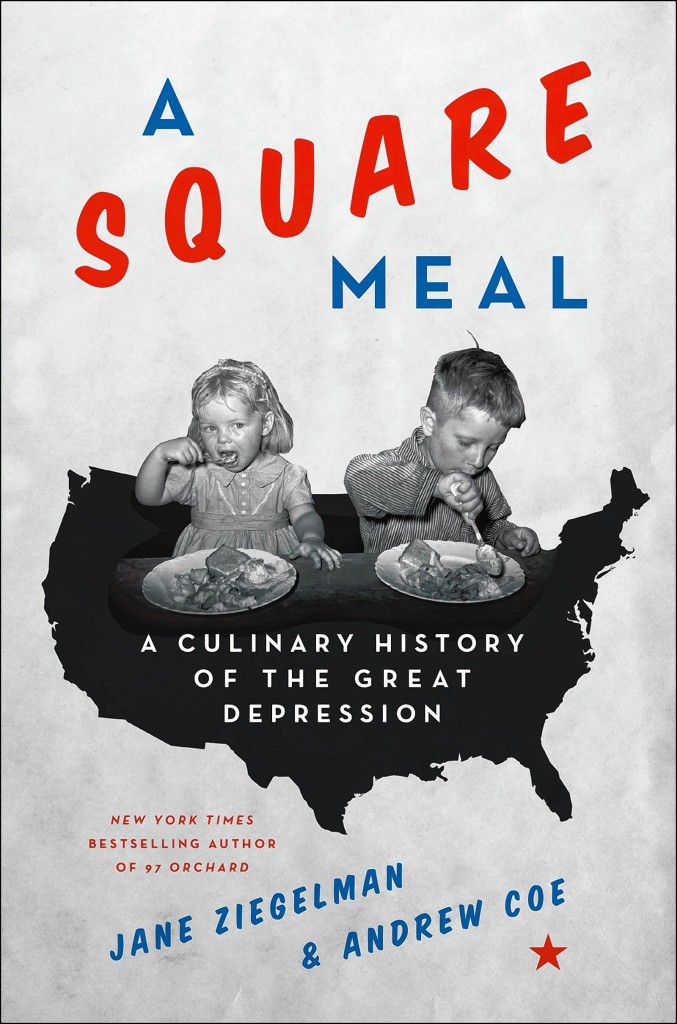A square meal: A culinary history of the Great Depression
Jane Ziegelman
2016, 336 pages
Nonfiction
Before the 1920s, American cuisine was characterized by home-made and regional dishes on farms and in the country while in the cities, quick food prepared by others was the norm. In A Square Meal, Jane Ziegelman and Andrew Coe chronicle how the Great Depression sparked a movement towards a homogenized cuisine that was based on speed, convenience and consuming necessary nutrients rather than taste or regional identity. When President Roosevelt authorized “food relief” in 1933, it was the first time that the national government had ever provided staples directly to the American people. Roosevelt turned to home economists who pushed a sturdy utilitarian cuisine that relied heavily on canned and processed ingredients that would nevertheless meet dietary recommendations. This reliance can still be seen in our culinary options today.
A Square Meal is well-written and entertaining. The descriptions of American regional cuisine in the pre-Depression era are mouthwatering, especially when contrasted with the descriptions of what “food relief” provided. Ziegelman is also excellent when discussing the ambivalence towards “relief” that both donors and the needy demonstrated. The conclusion of A Square Meal was abrupt, and it would have been interesting to see Ziegelman extend her ideas further into the beginning of World War II and how food rationing cemented or displaced the reliance on canned and processed ingredients to liven up inexpensive food. However, on its own merits A Square Meal is a book to savor.
Nora CascaddenConcord Public LibraryVisit CPL at concordpubliclibrary.net.









